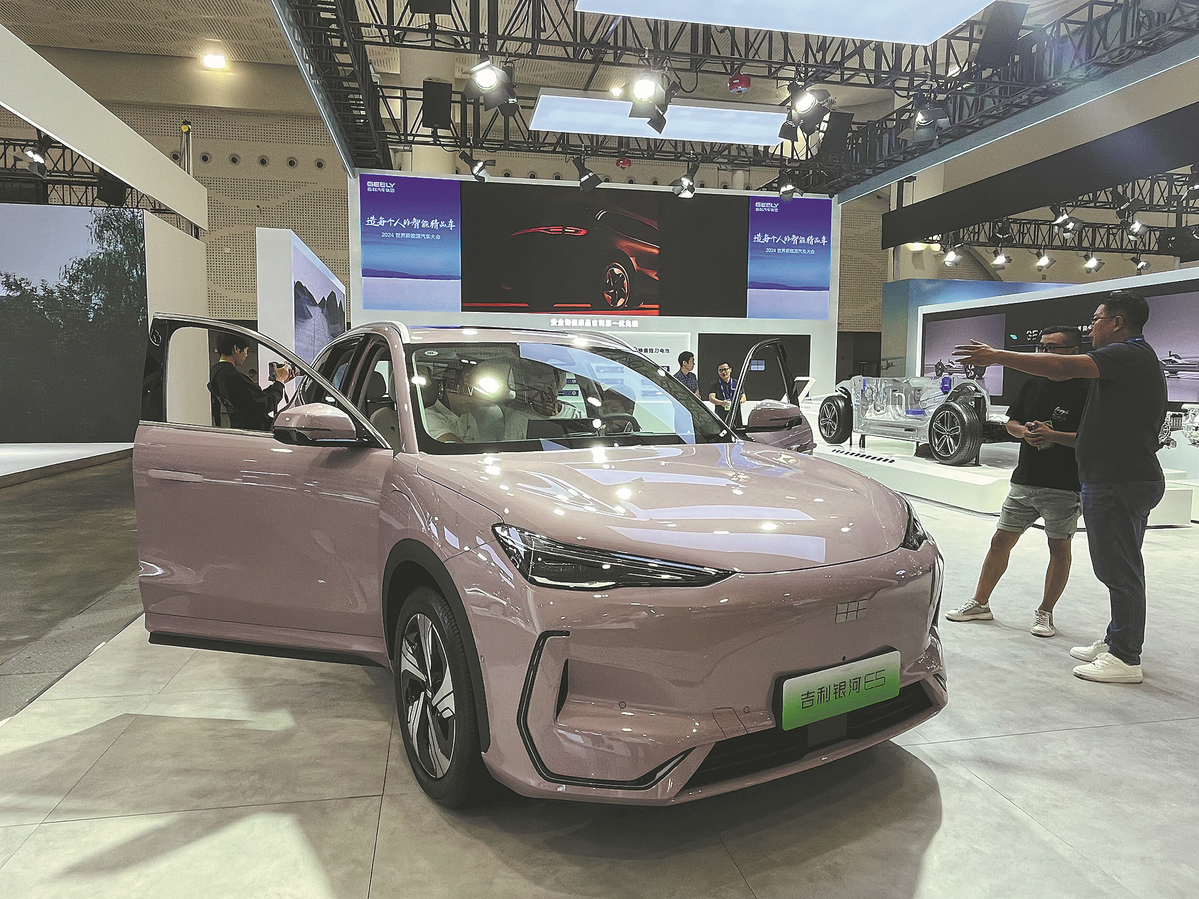Carmakers signing up to use DeepSeek AI
Chinese companies focusing on advanced cockpits to help them beat the competition


The fast adoption of digital cockpits shows that the industry would like to improve the in-car experience in a new era where cars not only drive themselves but "think "for their passengers.
McKinsey analysts said these high-tech cockpits — designed to provide personalized experiences for every occupant — are expected to become the focal point of vehicle innovation as autonomous driving takes hold.
The AI systems learn from a driver's habits, adjusting everything from seat position and air conditioning to entertainment preferences.
Perhaps most notably, it also recognizes passenger emotions through subtle cues, such as facial expressions and voice tone, adjusting settings to optimize comfort and safety.
SenseAuto, a subsidiary of AI software provider SenseTime, gave a glimpse into its latest smart cabin solution, called A New Member for You, in late 2024.
For example, when a child is in the back seat, the system can automatically lower the volume of the radio or dim the lights to create a more soothing atmosphere.
It will give you words of praise if it sees a medal on your neck, or suggests the child refrain from eating candy if the family is on the way back from a dental clinic.
Such advancements have raised the stakes for automakers aiming to offer an experience that rivals traditional vehicle ownership.
"It's no longer just about having a car that drives well," said Li Jie, a Shanghai-based auto analyst. "Now it's about creating an environment that enhances your quality of life, whether you're commuting, working, or relaxing."
In a word, smart cabin functions are making vehicle more than mere a mode of transport. More importantly, car buyers want them to be an extension of their lifestyle.
A survey released last week by J.D. Power and Tongji University shows that 83 percent of respondents would like the system to learn about their driving habits and offer scenario-based recommendations.
Leading companies are undergoing foundational integration of autonomous driving systems with intelligent cockpit platforms, which will enable a seamless, interactive environment inside the car, said McKinsey analysts.
As vehicles take on the task of driving, occupants will be freed from the steering wheel, unlocking new opportunities for in-car experiences.
From relaxing with personalized entertainment to participating in virtual meetings, the vehicle will become a space as versatile as the home or office.
The smart cabin, equipped with advanced AI systems, will serve as the interface between passengers and the vehicle, allowing for natural and intuitive interactions.
For instance, a system powered by autonomous driving and intelligent cockpit integration might enable the car to understand and act accordingly when the driver says, "Please drive more slowly" or "Stop at the door of the cafe after passing the second intersection".
These kinds of practical, location-aware interactions are expected to become commonplace as the technology matures, said McKinsey analysts.
lifusheng@chinadaily.com.cn




































